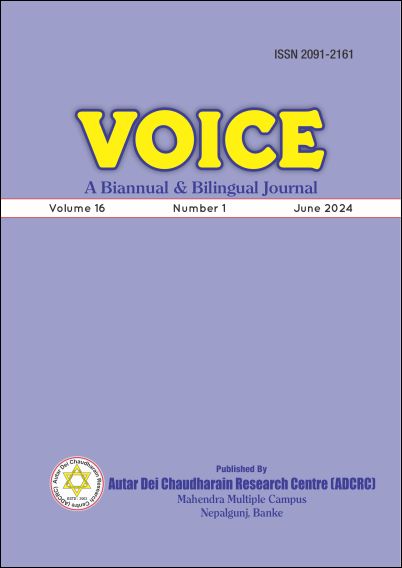Poverty, Unemployment and Human Development in Nepal: Effectiveness of Economic Reformation Policies of 1990s
DOI:
https://doi.org/10.3126/voice.v16i1.67422Keywords:
Unemployment, Economic reformation, Effectiveness, PovertyAbstract
Nepal initiated economic reformation measures during late 1980s under the guidance and support of IMF and world Bank when its balance of payment (BoP) turned negative in 1982/83 and remained negative for three consecutive years. The sequential governments after restoration multiparty democracy in Nepal in 1990 implemented various measures of economic reformation related to trade liberalisation, investment and foreign exchange regimes, unification of the exchange rate, rationalisation of the tariff structure and tax system, promotion of export and strengthen public expenditure management were introduced. The aim of these reformation policies was to reduce poverty by accelerating economic growth and increasing employment opportunities. This paper attempts to evaluate effectiveness of these economic reformation policies of 1990s in reducing poverty and unemployment and improve human development condition in Nepal. It is descriptive and analytical in nature. Secondary sources of data have been used to carry out this paper. Books, research articles, reports of national and international agencies have been used as secondary sources of data. Descriptive statistical tools have been used to interpret results. This paper finds that reformation policies of 1990s have remained ineffective to reduce poverty and unemployment and improve human development condition at expected level.
Downloads
Downloads
Published
How to Cite
Issue
Section
License
Copyright (c) 2024 The Author(s)

This work is licensed under a Creative Commons Attribution-NonCommercial 4.0 International License.
CC BY-NC: This license allows reusers to distribute, remix, adapt, and build upon the material in any medium or format for noncommercial purposes only, and only so long as attribution is given to the creator.




